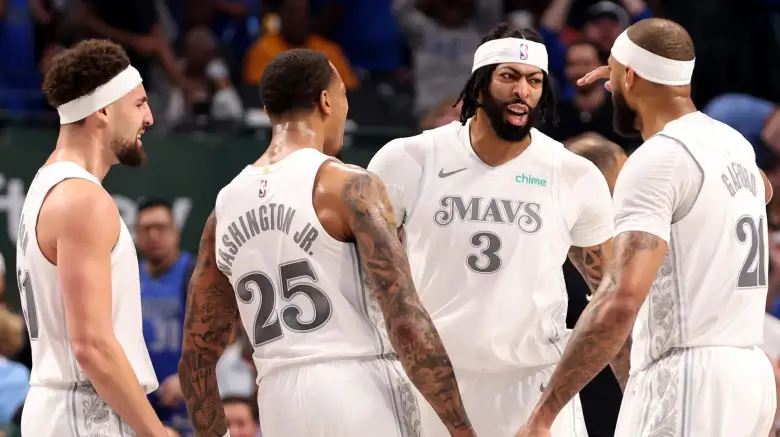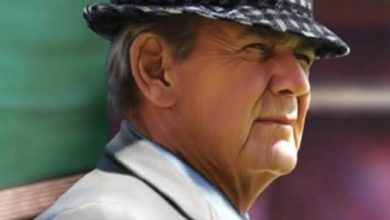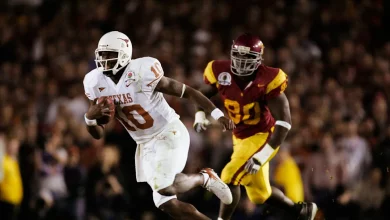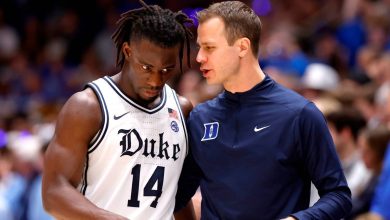Anthony Davis is reportedly selling his Los Angeles mansion for $39.9 million after being traded from the Lakers to the Mavericks for the 2024-25 season.

Anthony Davis, one of the most prominent and talented players in the NBA, has recently made headlines not only for his on-court performance but also for his off-court decisions, notably his decision to list his Los Angeles mansion for sale. The property, valued at approximately $39.9 million, is a testament to Davis’s success and status within the league. Following his high-profile trade from the Los Angeles Lakers to the Dallas Mavericks for the 2024-25 season, Davis has chosen to part ways with his LA residence, signaling a significant transition in his personal and professional life. This move reflects both the practicalities of his career shift and the lifestyle adjustments that come with changing teams and cities, highlighting the broader narratives of player mobility, wealth, and personal branding in professional sports.
Anthony Davis’s association with Los Angeles has been a defining chapter in his career. After signing with the Lakers in 2019, Davis quickly became a central figure in the team’s quest for championships, helping the Lakers secure an NBA title in 2020. His impact on the court was undeniable—an elite two-way player capable of dominating both offensively and defensively. Off the court, Davis established himself as a prominent figure in LA’s celebrity scene, investing in real estate and cultivating a lifestyle befitting a superstar. His Los Angeles mansion, a sprawling estate in one of the city’s most desirable neighborhoods, was not just a residence but a symbol of his success, wealth, and aspirations. The property boasted luxurious amenities, expansive living spaces, state-of-the-art features, and lush outdoor areas, reflecting Davis’s taste and status as an NBA star.
The decision to list his LA mansion for sale comes after a significant career move—namely, his trade to the Dallas Mavericks. This transition marks a new chapter for Davis, both professionally and personally. Trades are often complex and emotionally charged events for players, as they involve leaving behind familiar environments, teammates, and communities. For Davis, relocating from Los Angeles to Dallas signifies a change in lifestyle, team dynamics, and career trajectory. Selling his LA property is a practical step in this transition, allowing him to liquidate assets in the city he no longer represents on the court. It also underscores the importance of real estate as a strategic asset for athletes, who often invest heavily in property as a means of wealth preservation and lifestyle expression.
The $39.9 million listing underscores Davis’s status as one of the league’s elite players. The property’s high valuation reflects not only the luxury and exclusivity of the estate but also Davis’s earning power and the premium real estate market in Los Angeles. The city’s real estate market is renowned for its opulence, with properties that feature cutting-edge architecture, ample space, and privacy. Such a mansion typically includes multiple bedrooms and bathrooms, entertainment suites, gyms, pools, and meticulously landscaped outdoor areas. The listing likely attracted significant attention from affluent buyers, real estate investors, and fans interested in owning a piece of LA luxury.
This move also highlights broader trends among NBA players and high-net-worth individuals who frequently buy and sell luxury properties. Real estate is often a significant component of athletes’ financial portfolios, serving as a means to diversify wealth, establish a personal brand, and secure a lifestyle aligned with their success. For Davis, selling his LA mansion might also be motivated by personal preferences, investment opportunities, or a desire to establish a new home base in Dallas or elsewhere. The transition from LA to Dallas involves more than just a change of teams; it often entails a reassessment of personal assets and lifestyle choices.
The sale of such a high-profile property also garners considerable media and public attention. Fans, commentators, and industry insiders speculate about the reasons behind the move, the timing, and the future plans of the player. For Davis, this property sale is a tangible symbol of his career evolution, representing both the end of his chapter in Los Angeles and the beginning of a new one with the Mavericks. It also raises questions about his future real estate investments and whether he plans to acquire new properties in Dallas or elsewhere. Athletes often use real estate transactions as strategic moves, leveraging their celebrity status to maximize value and secure prime assets in different markets.
From a financial perspective, selling a luxury mansion at such a high price can have significant implications for Davis’s wealth management. The proceeds from the sale could be reinvested into other properties, saved for future investments, or used for personal expenses. For athletes, managing wealth is crucial, especially considering the often short span of their careers and the need to ensure long-term financial stability. Davis’s decision to sell his LA mansion indicates thoughtful asset management, possibly aligning with his broader financial strategies or lifestyle preferences.
The move also reflects the changing landscape of NBA team dynamics and the impact of trades on players’ personal lives. In the modern era, players are not just athletes but also entrepreneurs and influencers. Their real estate decisions often make headlines, symbolizing their personal brand and financial acumen. Davis’s mansion sale is a case in point—it demonstrates how players leverage their earnings to craft a lifestyle that extends beyond the basketball court. This trend is evident across the league, with many stars investing in luxury properties in major markets like Los Angeles, New York, and Miami.
The transition from Lakers to Mavericks also signifies a shift in Davis’s on-court role and team environment. The Lakers, a franchise with a storied history and high expectations, provided a platform for Davis to showcase his talent and compete for championships. Moving to the Mavericks, a team with its own legacy and aspirations, offers new opportunities and challenges. Such transitions often influence players’ personal lives, from daily routines to residence choices. Selling his LA mansion could be part of his preparations to settle into Dallas or other locations conducive to his personal and professional needs.
This real estate move also underscores the broader economic and cultural phenomenon of athlete-led real estate transactions. High-profile sports figures frequently purchase, renovate, and sell luxury properties, often setting trends in the luxury housing market. Their decisions can influence market values and inspire other buyers. Davis’s sale fits into this context, illustrating how athletes are not only sports icons but also influential figures in real estate and lifestyle sectors.
In conclusion, Anthony Davis’s decision to list his Los Angeles mansion for $39.9 million after his trade from the Lakers to the Mavericks is a multifaceted move that reflects his evolving career, personal priorities, and financial strategy. The property sale symbolizes a transition from his LA chapter to a new phase in Dallas, aligning with his professional journey and lifestyle ambitions. It also highlights broader themes of wealth management, celebrity influence in real estate, and the personal dimensions of professional sports careers. As Davis embarks on this new chapter, the sale of his LA mansion will undoubtedly be remembered as a significant milestone in his ongoing career and life story, exemplifying how athletes navigate success, wealth, and personal identity beyond the game.









